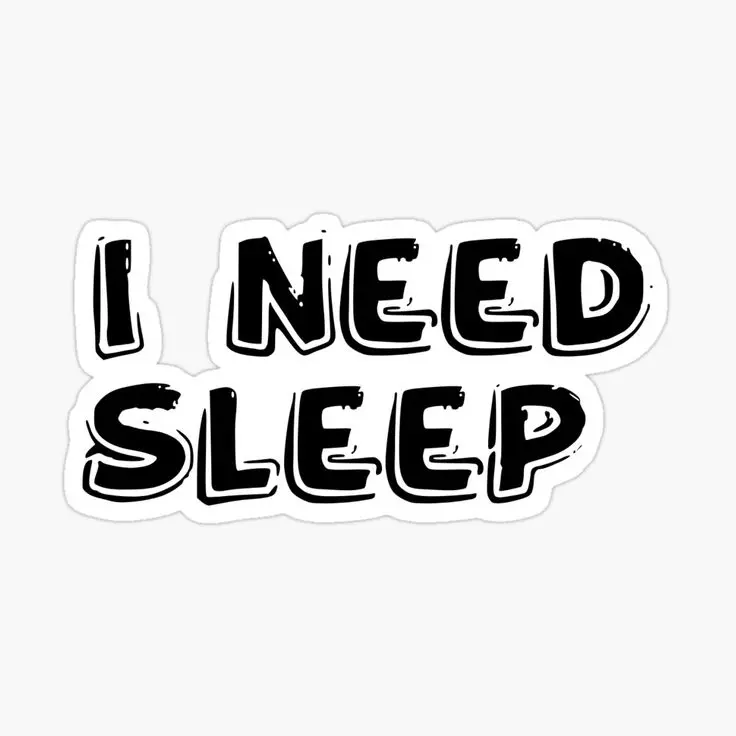INTRODUCTION
Need Sleep 1080×1080 is one of the most important activities our body requires to function properly, yet it’s something many people struggle with. Whether you’re a student burning the midnight oil, professional juggling work and life, or just someone dealing with stress or health issues, getting a good night’s sleep can feel like a challenge. This guide, titled “Need Sleep 1080×1080,” is here to help you understand sleep better and offer practical tips to improve it.

In this detailed post, we will cover:
- Why Sleep is Essential for Your Health
- Common Sleep Disorders and Their Causes
- Simple Ways to Improve Your Sleep Quality
- How Screen Time Affects Sleep (1080×1080 Reference)
- The Role of Sleep in Mental and Physical Health
- Natural Remedies and Sleep Hacks to Try
- Creating the Perfect Sleep Environment
By the end of this guide, you’ll be armed with information and strategies to improve your sleep, even in a world full of distractions like technology, social media, and endless to-do lists. Let’s get started!
1. Why Sleep is Essential for Your Health
Sleep is much more than just a time for your body to rest. It’s a process where your body goes into repair mode, your brain processes information, and essential biological functions are carried out. A lack of sleep can lead to several health problems, both mental and physical.
Here are the key reasons why sleep is so essential:
- Memory and Learning: During sleep, the brain processes information and consolidates memories. If you don’t sleep enough, you might find it hard to remember things or learn new information.
- Emotional Well-being: Lack of sleep can make you irritable and prone to mood swings. It also affects how you handle stress and process emotions.
- Physical Repair: While you sleep, your body repairs muscles, tissues, and cells. This is why athletes and people recovering from injuries are often told to prioritize sleep.
- Immune System Boost: Sleeping helps strengthen your immune system, making it easier for your body to fight off infections and stay healthy.
- Metabolism and Weight Management: People who don’t sleep enough are more likely to gain weight. This is because sleep affects hormones that regulate hunger and metabolism.
Sleep is crucial for overall health, and not getting enough can lead to serious consequences over time, like an increased risk of heart disease, diabetes, and mental health disorders.
2. Common Sleep Disorders and Their Causes
For many people, getting enough sleep isn’t as simple as just going to bed early. Sleep disorders can make it difficult to fall asleep, stay asleep, or get restful sleep. Some common sleep disorders include:
- Insomnia: The most common sleep disorder, insomnia, refers to the inability to fall asleep or stay asleep. It can be caused by stress, anxiety, caffeine, or poor sleep habits.
- Sleep Apnea: This condition occurs when a person’s airway becomes blocked during sleep, leading to pauses in breathing. It’s often linked to obesity and can cause fatigue, headaches, and snoring.
- Restless Leg Syndrome (RLS): RLS is characterized by uncomfortable sensations in the legs that cause an irresistible urge to move them. It usually happens in the evening or at night, disrupting sleep.
- Narcolepsy: A neurological disorder that affects your ability to control sleep-wake cycles. People with narcolepsy may fall asleep suddenly at inappropriate times.
Understanding the root causes of sleep disorders is the first step to addressing them. They can stem from lifestyle factors (e.g., caffeine, stress), medical conditions (e.g., asthma, allergies), or even environmental factors like noise and light.
3. Simple Ways to Improve Your Sleep Quality
If you struggle with getting enough rest, there are many small adjustments you can make to improve your sleep quality. Here are some effective tips:
1. Stick to a Sleep Schedule
Go to bed and wake up at the same time every day, even on weekends. This helps regulate your body’s internal clock and makes it easier to fall asleep and wake up naturally.
2. Create a Relaxing Bedtime Routine
In the hour before bed, engage in relaxing activities like reading, stretching, or listening to calming music. Avoid stimulating activities like watching action-packed TV shows or scrolling through social media.
3. Limit Exposure to Blue Light
This is where the “1080×1080” comes into play. Screens like smartphones, tablets, and computers emit blue light that interferes with your body’s production of melatonin, the hormone responsible for sleep. Set your devices to “night mode” or limit screen time to the hour before bed to reduce this impact.
4. Watch What You Eat and Drink
Avoid caffeine, alcohol, and large meals right before bed. Caffeine is a stimulant that can keep you awake, while alcohol may disrupt your sleep later in the night. Eating heavy meals close to bedtime can cause indigestion, making it harder to sleep.
5. Get Regular Exercise
Exercise can help regulate your sleep cycle by reducing stress and boosting sleep-promoting hormones like melatonin. Just make sure not to exercise too close to bedtime, as it can have a stimulating effect.
6. Make Your Bedroom Comfortable
Your sleep environment plays a big role in how well you sleep. Ensure your bedroom is cool, quiet, and dark. Invest in a comfortable mattress and pillows that support your body.

4. How Screen Time Affects Sleep (1080×1080 Reference)
With the rise of technology, screen time has become a significant factor in sleep quality. Whether you’re scrolling through social media or binge-watching shows, your devices can prevent you from getting the sleep you need.
Blue Light and Its Impact on Sleep
Screens emit blue light that disrupts the production of melatonin, the hormone that makes you feel sleepy. Exposure to blue light, especially in the evening, tricks your brain into thinking it’s still daytime, making it harder to fall asleep.
1080×1080 – What’s the Connection?
The term “1080×1080” refers to the resolution of images commonly seen on social media platforms like Instagram. Social media can be addictive and engaging, causing users to spend hours on their devices before bed. The stimulating content and notifications also keep your brain active, making it difficult to wind down.
Tips to Limit Screen Time Before Bed
- Use a blue light filter or “night mode” on your devices after sunset.
- Set a specific time to stop using devices before bed.
- Try reading a physical book instead of an e-book to relax your mind.
By reducing screen time and exposure to blue light in the evening, you’ll create a better environment for sleep and improve your overall sleep quality.
5. The Role of Sleep in Mental and Physical Health
Not getting enough sleep doesn’t just make you feel tired—it can have a serious impact on your mental and physical well-being.
Mental Health
Sleep and mental health are closely linked. Poor sleep can contribute to mental health disorders such as anxiety, depression, and stress. On the other hand, mental health conditions can also interfere with sleep, creating a vicious cycle.
People who consistently get good sleep tend to have better emotional regulation, a more positive outlook on life, and reduced stress levels.
Physical Health
Physically, lack of sleep increases the risk of heart disease, obesity, diabetes, and even stroke. Sleep helps regulate your body’s metabolism, blood pressure, and immune system. When you don’t get enough rest, your body struggles to function properly, which can lead to a weakened immune system and slower recovery from illness.
6. Natural Remedies and Sleep Hacks to Try
If you’re looking for ways to improve your sleep without medication, there are several natural remedies and hacks you can try:
1. Chamomile Tea
Known for its calming properties, chamomile tea can help you relax and fall asleep faster. Drink a warm cup about 30 minutes before bed for best results.
2. Lavender Oil
Lavender has a calming scent that promotes relaxation. You can use lavender oil in a diffuser, spray it on your pillow, or add a few drops to your bath.
3. Meditation and Deep Breathing
Practicing mindfulness meditation or deep breathing exercises before bed can help clear your mind and relax your body, making it easier to fall asleep.
4. Melatonin Supplements
Melatonin is a hormone that regulates sleep. If you’re having trouble falling asleep, melatonin supplements can help reset your sleep cycle. Be sure to consult a healthcare professional before taking any supplements.
7. Creating the Perfect Sleep Environment
Your sleep environment has a direct impact on how well you sleep. Here’s how to set up a bedroom that promotes rest:
- Keep it Cool: The ideal room temperature for sleep is between 60-67°F (15-19°C). A cool environment helps your body cool down, signaling that it’s time to sleep.
- Limit Noise and Light: Use blackout curtains or an eye mask to block out light, and try earplugs or a white noise machine to drown out any distracting sounds.
- Choose the Right Mattress and Pillows: A comfortable, supportive mattress and pillows can make all the difference in the quality of your sleep. Make sure your bed is tailored to your personal comfort needs.
Conclusion
Improving your sleep doesn’t have to be complicated. By understanding the importance of sleep, identifying any potential sleep disorders, making small lifestyle changes, and creating a restful environment, you can significantly enhance your sleep quality.




















Be First to Comment